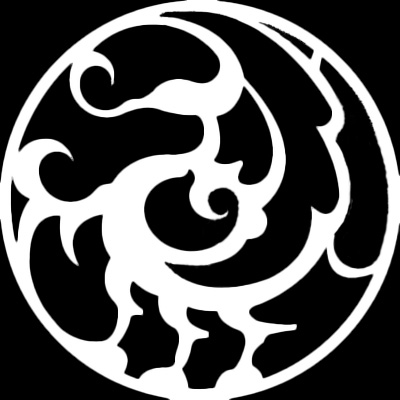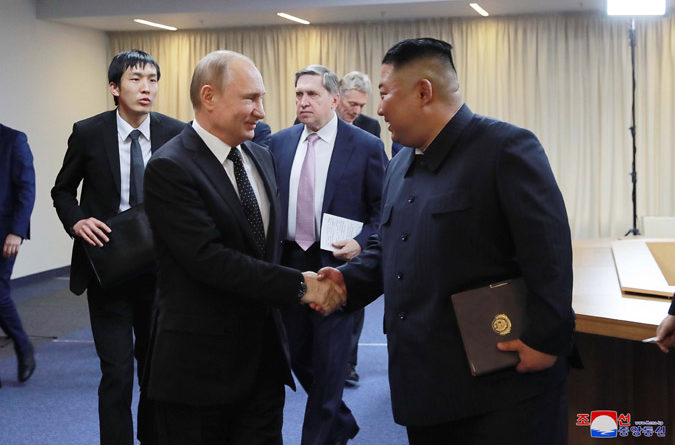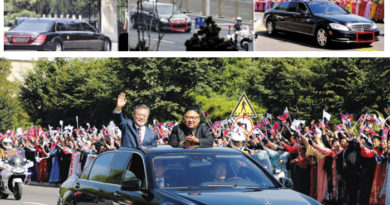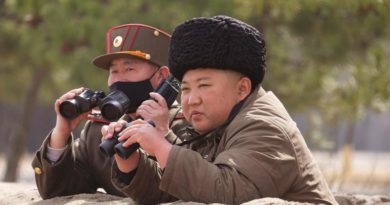Kim Meets President Putin
Kim Jong Un met President Putin in a joint summit of the leaders of the two countries for the first time in eight years on Thursday (though both leaders left rather quickly). The summit was full of symbolism but did not result in any joint agreements, though President Putin did offer to relay the details of the meeting with President Trump. Of course, Russia has geopolitical interests in the Korean Peninsula and in the wider Asia Pacific. And KJU, having largely based his cult of personality on his grandfather’s, seems to want to recreate the elder Kim’s political navigation between Moscow and Beijing.
Russian Interests
As demonstrated by the final round of UNSCR sanctions, Russia does not want a nuclear armed DPRK on their Far Eastern border. And, consistent with UNSCR sanctions, Russia sent home some two-thirds of DPRK workers in 2018. However, Russia has used human rights as a cover for weakening the sanctions regime and, in many cases, has blatantly violated UNSCR sanctions. Now, President Putin is calling for the gradual piece-by-piece easing of sanctions for reciprocal North Korean actions. While Russia does not want a nuclear armed DPRK on their border, they realize that the DPRK will never give up their only guarantee of regime survival. Further, as Russian power continues to decline they have a vested interest in limiting US ability to project power in the region.
Adding to the desire to limit US strategic interests in the region, Russia sees hosting KJU as beneficial to negotiations with Japan and the ROK. With Japan, Russia can be seen as possessing the ability to leverage relations with the DPRK regarding the abducted Japanese citizens. In return, Japan may be willing to soften its stance on the Russian occupied Kuril Islands. Additionally, Japan may be willing to guarantee that US bases will not be built on the returned Kuril Islands. Likewise, President Moon, having invested serious political capital into inter-Korean relations, may feel the need to appeal to President Putin rather than President Trump. This would not only bolster Russia’s status in the region, but would do so at the expense of the US.
The US Response
Also this past week, Prime Minister Abe met with President Trump at the White House. This meeting came after President Moon attempted to persuade Trump to support “good enough” deals with the DPRK, and Abe sought to ensure the opposite strategy prevails. The US is in a difficult position with only Japan sharing the current all-or-nothing strategy, and the ROK, PRC, and Russia advocating for the DPRK’s gradual piece-by-piece strategy. Recently, US legislators traveled to the ROK where they confirmed that the DPRK must take “concrete steps” before the US will support any sanctions relief. Meanwhile, the DPRK continues to call on the ROK to abandon the US and go their own way, something the current ROK government has hinted its openness to.
I believe that the Russians are right to acknowledge that the Kim regime will never relinquish its nuclear, biological, and chemical weapons programs. Further, I believe it is impossible for the Kim regime to pursue a Chinese model of economic development or make any substantial progress on its human rights abuses while a prosperous ROK exists to the south. China was able to embrace some liberalization while maintaining its strong nationalist sentiment. However, if North Koreans began to experience some of the benefits of a liberalized system, the Kim regime would most likely fall. Thus, the DPRK is hoping to first attain a peace treaty, remove the US security umbrella, and unify with the South under the auspices of Pyongyang.
For these reasons, I believe the US should not expect much from negotiations with the DPRK or its advocates in the ROK. Rather, the US should pursue a policy of containment focusing on restricting the DPRK’s illicit activities in the international arena. President Moon’s plummeting public support demonstrates that the US can, and should, wait out the current Moon government while striving to protect the alliance, especially if the LKP takes control of the National Assembly in 2020. However, the current events in Taiwan, Hong Kong, and the Korean Peninsula demonstrate that geopolitics is alive and well in Northeast Asia.




